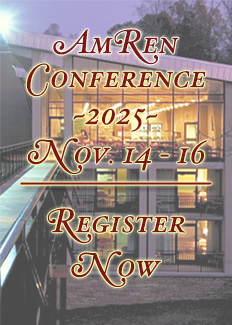First Christmas Market in Germany Cancelled Amid Dispute Over Terrorism Protection Costs
Thomas Brooke, Remix, November 6, 2025
The Christmas market in Overath, North Rhine-Westphalia, has been cancelled this year following an ongoing dispute between the city and organizers over who should bear the growing costs of counter-terrorism security.
The decision, announced by the city marketing association OVplus and first reported by Cologne Express, ends a long-running tradition of the festive market held around St. Walburga Church on the first weekend of Advent.
Association chairman Andreas Koschmann said talks with Overath’s local council had dragged on for months without success. “We have been in discussions with the Overath administration regarding who will cover the costs of the necessary counter-terrorism measures for about a year and a half now,” he stated, adding, “Unfortunately, without success.”
The city, according to OVplus, refused to take responsibility for the costs, despite a Berlin court ruling declaring that protection against terrorism is a sovereign duty of the state. Koschmann said the association agrees with that legal view, arguing that organizers cannot be expected to shoulder costs for public safety measures.
In a press release, the city administration insisted that there was “no concrete threat” to the event, and, as such, extra funding for security was unnecessary. They also state the site is protected by a wall, and direct vehicle access is impossible.
“In principle, the responsibility for the safe conduct of an event lies with the organizer, especially if they bear the financial risk and are in charge of the organizational management,” the council added, as cited by Rundschau Online.
For Koschmann, the claims coming from the city are unbelievable.
“Even after a year and a half of discussions, nothing seems to have gotten through,” he said, while shaking his head, according to a report from Focus Magazine. The professional event organizer told Kölner Stadt-Anzeiger that a vehicle is not the only way to attack a Christmas market.
“You don’t need a vehicle to cause trouble at a Christmas market,” he said. “Without a binding commitment of support, we as the organizers can no longer bear the personal and economic risk.”
Koschmann said there is a threat of terrorism that exists throughout Germany and the appropriate safeguards must be in place. Notably, North Rhine-Westphalia’s Interior Minister Herbert Reul (CDU) was also asked about security at Christmas markets and said that “no compromises should be made” when it comes to security.
Previously, the organizing group was able to balance losses from smaller festivals with revenue from the annual “Overath Spring” event. But this year, OVplus already spent €17,000 on counter-terrorism precautions for that festival, leaving nothing to fund the Christmas market.
The organizers have also ruled out charging an entrance fee and the cancellation now also casts doubt on future events.
“This decision hurts,” Koschmann admitted. “For many years, we have organized the Overath Christmas market with the utmost personal commitment and a great deal of passion.” He warned that unless an agreement is reached with the city, no further festivities can take place.
The dispute comes against the backdrop of renewed fears of Islamist terrorism targeting public events in Germany. In December 2024, six people were killed and nearly 300 injured when a Saudi national, identified as 50-year-old Taleb Al-Abdulmohsen, drove his car into crowds at the Magdeburg Christmas market. The attack, carried out just days before Christmas, was one of the deadliest in Germany since the 2016 Berlin Christmas market massacre.
Al-Abdulmohsen, who had lived in Germany for several years, was reported to have acted alone, though prosecutors later found Islamist propaganda on his devices. The attack was condemned nationwide and prompted a review of safety measures at public gatherings.
In July 2025, public broadcaster MDR revealed that a friend of the attacker, 24-year-old Saudi national Ahmad A., had expressed open approval of the killings in an interview, saying he “wished more people had died.” Ahmad A., who also worked in clinical psychology and had known the attacker personally, told reporters that Al-Abdulmohsen felt persecuted by society and authorities. After the interview aired, police launched an investigation, and the man reportedly went into hiding.
The Magdeburg atrocity followed a series of thwarted or deadly Islamist plots across Germany, including a foiled attack on a Schleswig-Holstein Christmas market in November 2024, a planned bombing by Tajik extremists in Cologne and Vienna, and the Solingen Diversity Festival stabbings carried out by a Syrian Islamist in August 2024.
Police and counter-terrorism units have since intensified security around Christmas markets and carnivals, but officials warn that full protection “is not possible.”
















